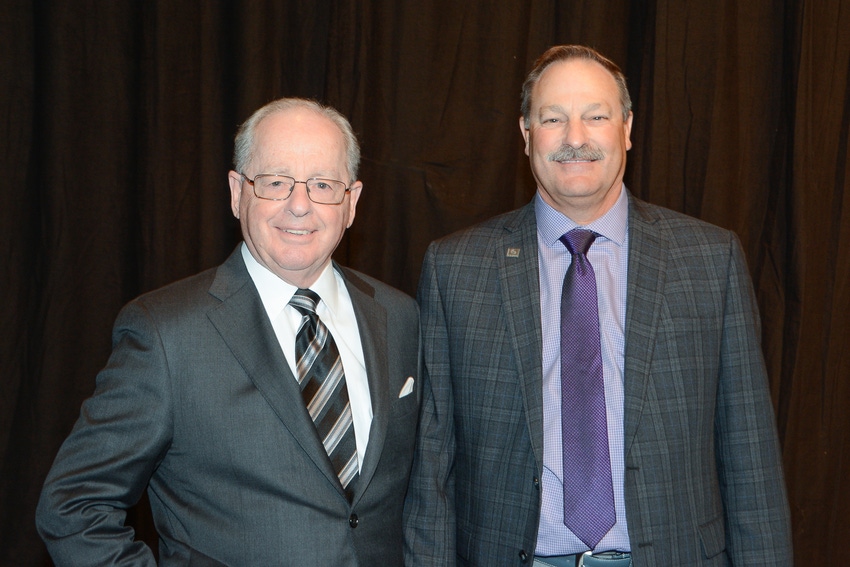
California pest control advisors (PCAs) should join ongoing agricultural advocacy efforts because, in short, their industry and jobs depend on it.
In an attempt to sway decisions made by California legislators and regulators that typically work against commercial agriculture and those who provide them necessary goods and services, over 1,000 PCAs attending the annual California Association of Pest Control Advisors conference were told they need to become more vocal and purposeful.
CAPCA Board Chairman Rick Wescott of Visalia highlighted what could be at the forefront for California PCAs in the coming months as the governor’s office apparently wants to legalize crop protection products in cannabis without the costly and lengthy scientific review required by the state and federal Environmental Protection Agency.
According to Wescott, California officials want to fast-track label approval to allow pesticides and herbicide currently labeled for use in leafy greens for automatic labeling for use on cannabis, even though it remains a federal felony to grow the crop.
He says chemical companies can spend millions of dollars and 15 years in product development to bring a crop protection product to market with no guarantees that the Environmental Protection Agency or California Department of Pesticide Regulations will approve its use.
He also noted the same groups and organizations that typically oppose pesticides and herbicides for a variety of reasons remain silent on this matter.
“This is liability and a lawsuit waiting to happen,” he said.
A University of California farm advisor said that some products currently used in cannabis can be converted to arsenic when exposed to fire.
Wescott also used his address to CAPCA membership to introduce the organization’s new lobbyist. George Soares, managing partner in Kahn, Soares & Conway, will help shape CAPCA’s advocacy efforts, as his firm does in representing the state’s various agricultural commissions, chemical manufacturers and others.
Soares used his introductory address to CAPCA members at Reno, Nev. to encourage involvement in the legislative and regulatory process which often work against the best interests of the state’s $100 billion agricultural industry.
“Too many of us in this room don’t know the people who affect our lives on a daily basis,” Soares told the audience of about 1,600. He says this needs to change.
As he has with other agricultural audiences he represents, Soares encouraged PCAs to become engaged in agricultural advocacy, and to learn ways to better communicate these issues through words that are more easily understood and palatable by a general audience.
“You talk about chemicals in a way people can’t relate to,” he said. One way, he suggests, is for the chemical companies to develop new names for the active ingredients and chemicals they develop. Those names, according to Soares, “frighten politicians.”
Soares recalls the formation of California DPR and how environmental activists at the time argued the California Department of Food and Agriculture was too cozy with farmers to allow it to continue oversight of pesticide regulations. He helped craft language when forming DPR that would ensure production agriculture was protected from the activists.
Since then, DPR has “become an apologist for its existence as opposed to proudly proclaiming its existence,” he said. “It’s the finest program in the nation, and yet we end up with contrived school regulations that restrict pesticide applications near schools.”
Soares called the new school buffer zone issue unnecessary, saying there was no problem needing addressing – only a contrived belief that an extra layer of protection was necessary without the supporting documentation to suggest a problem exist.
He also recommends a language change from common terms like “farmworkers.” This term, he suggests, connotes servitude “that works against us in political settings."
“I never call employees on my dairy ‘workers’; they are part of my team. They’re all professionals and I call them that,” he continued. “We’ve must do it better if we’re going to achieve what we need to as an industry.”
Soares highlighted issues that have and will continue to impact California farmers. He shared how California legislators began publicly calling farmers “racists” and “slave owners” during last year’s hearings to promote changes in overtime law that now affect how farmers pay employees.
Soares called out key legislators on their use of these terms, only to be told they didn’t mean it that way as they backtracked on their offensive language.
“The disrespect for farmers is that big in Sacramento,” he said. “This is a big deal; I’ve never seen this much disrespect for an industry in Sacramento.”
He further highlighted the financial state of California and how current policies that include retirement pay are unsustainable and could further impact tax rates.
For instance, Soares said the state’s retirement system fell $1.6 billion short of its obligations to retirees in 2002, leading the state to use general fund money to make up the difference.
“By 2027, the shortfall will grow to $19.5 billion,” he said. “There is no way California can keep its promise to state employees.”
Soares sometimes chided and sometimes praised PCAs and agriculture in general during his address. His purpose was to encourage those involved in agriculture to do more.
“Agriculture in my view has done a great job growing the crops we grow (400 crops). We’re a big deal, but we’re treated like an inconvenience in California. They treat us like we’re in the way of progress,” he said.
He referenced the Sustainable Groundwater Management Act, which last year set in motion limits to groundwater pumping. He believes the law will reduce farming in California. As one example, he said his law firm currently represents farmers who are buying land simply to fallow it and use the water to grow crops on land they currently farm.
This is now commonplace in California as growers try to remain economically sustainable.
About the Author(s)
You May Also Like






